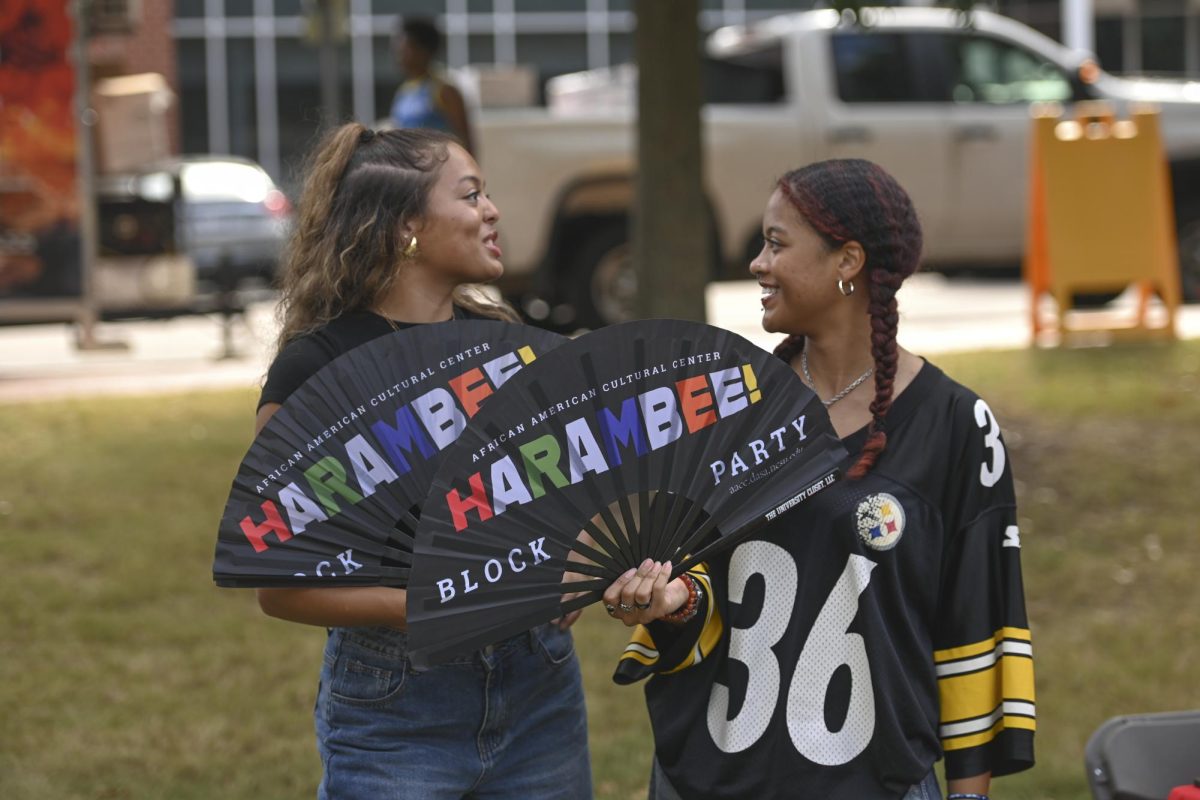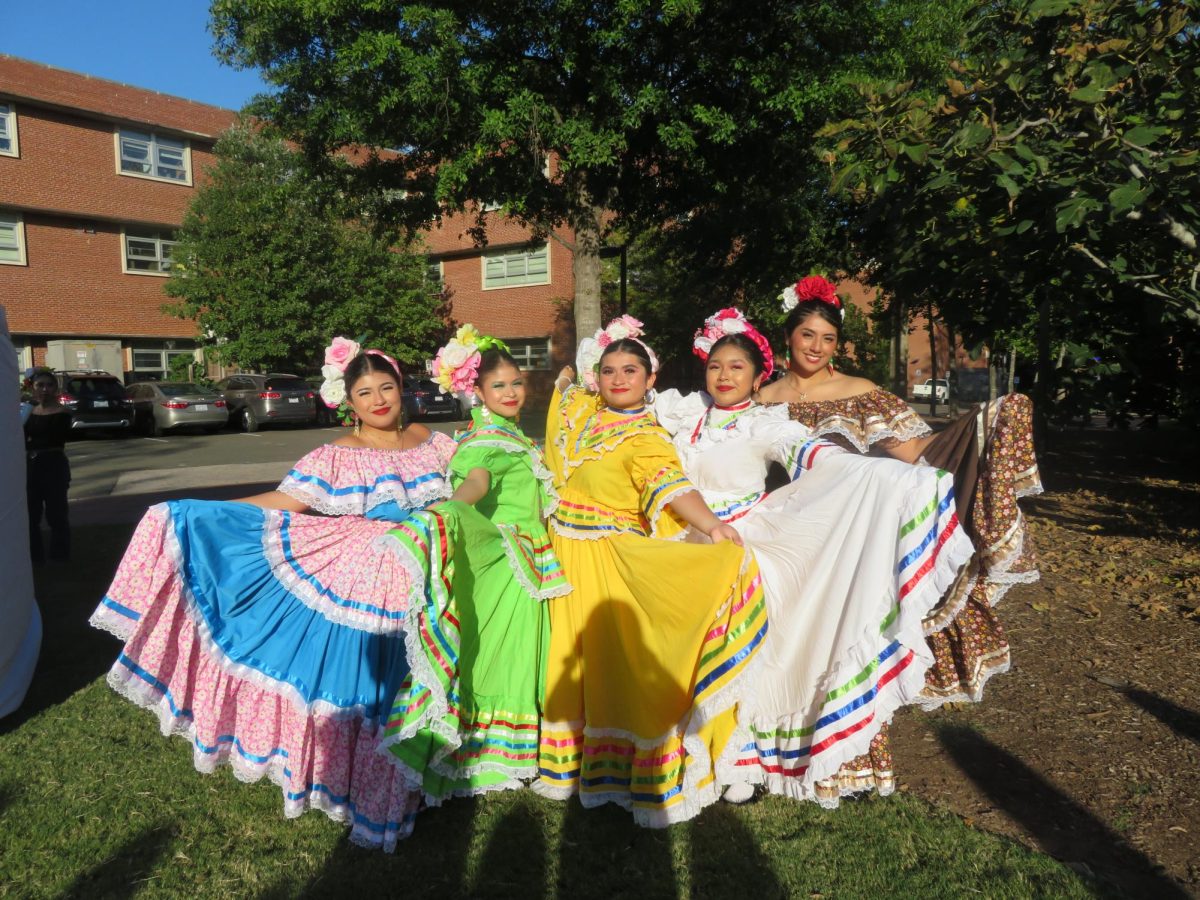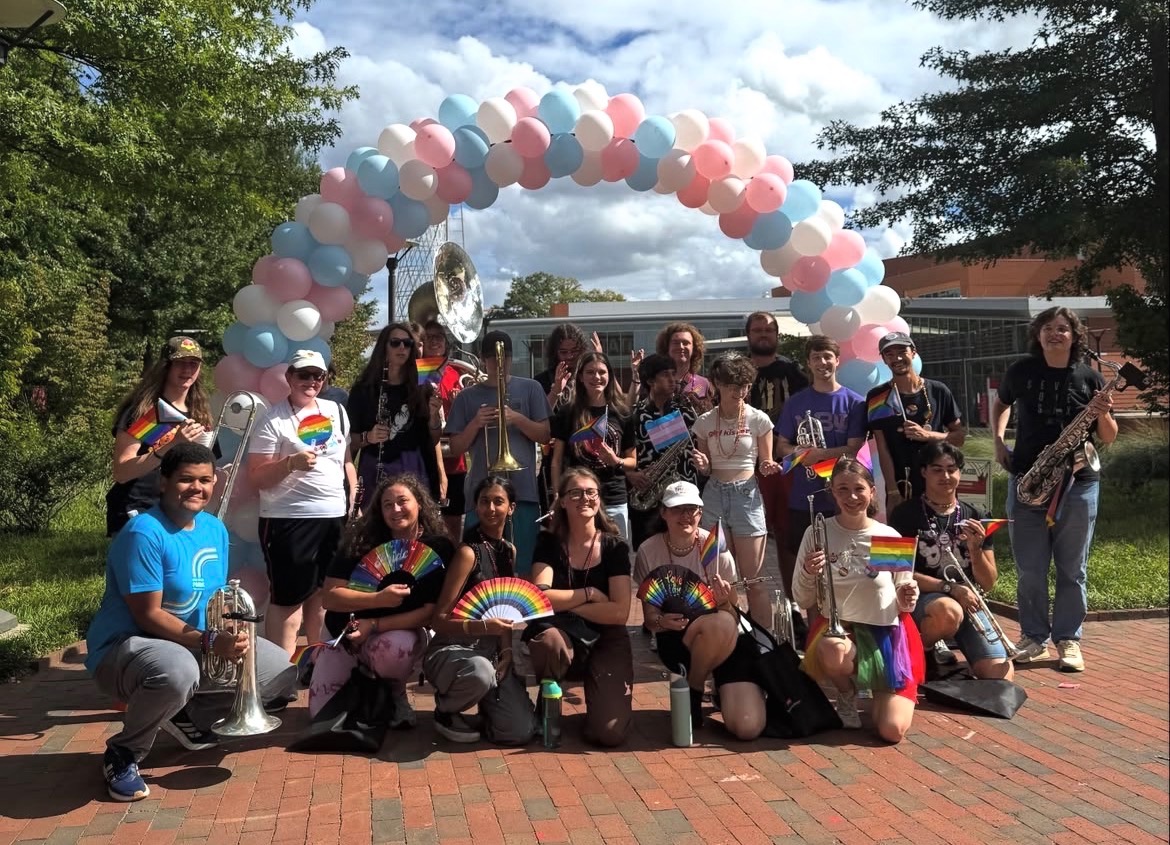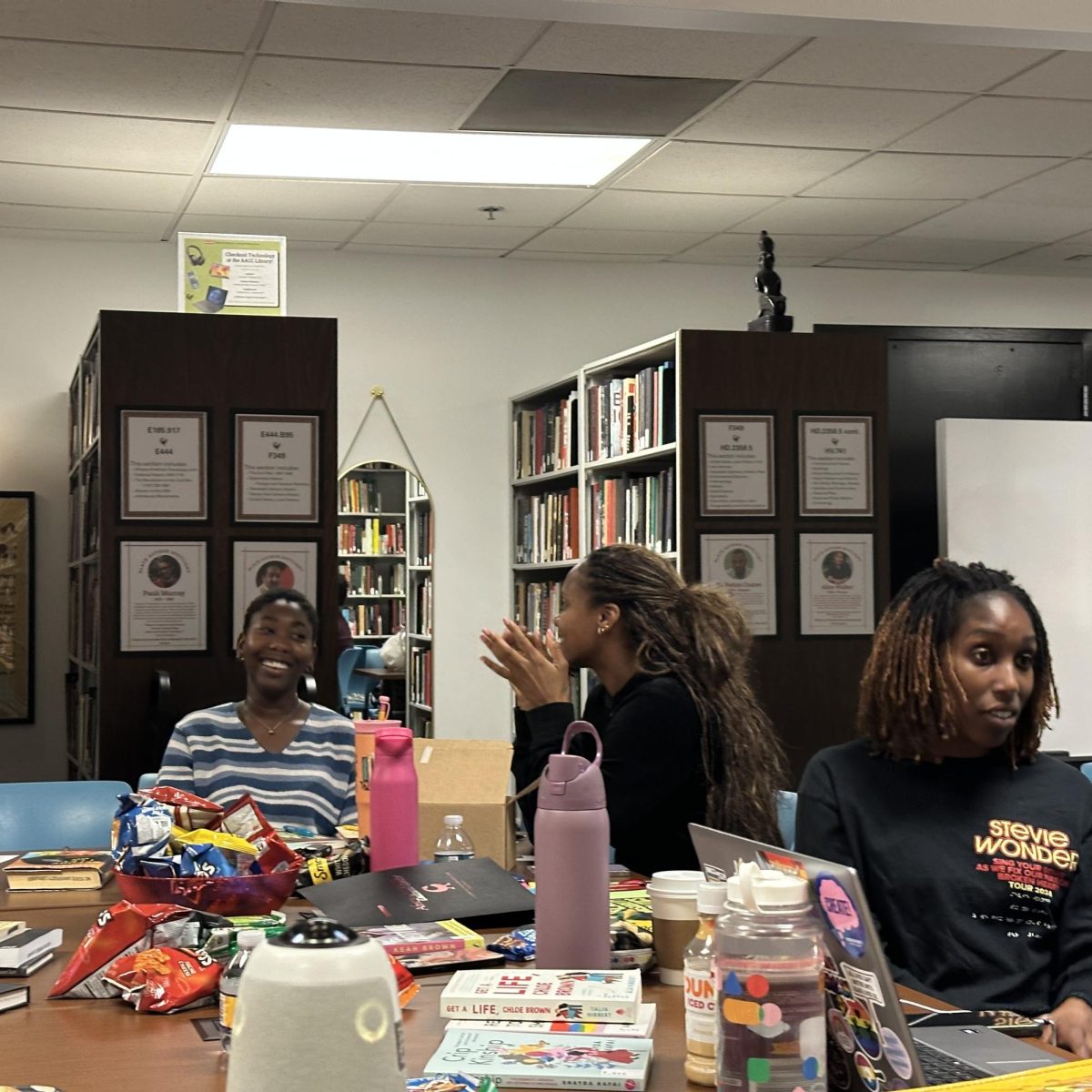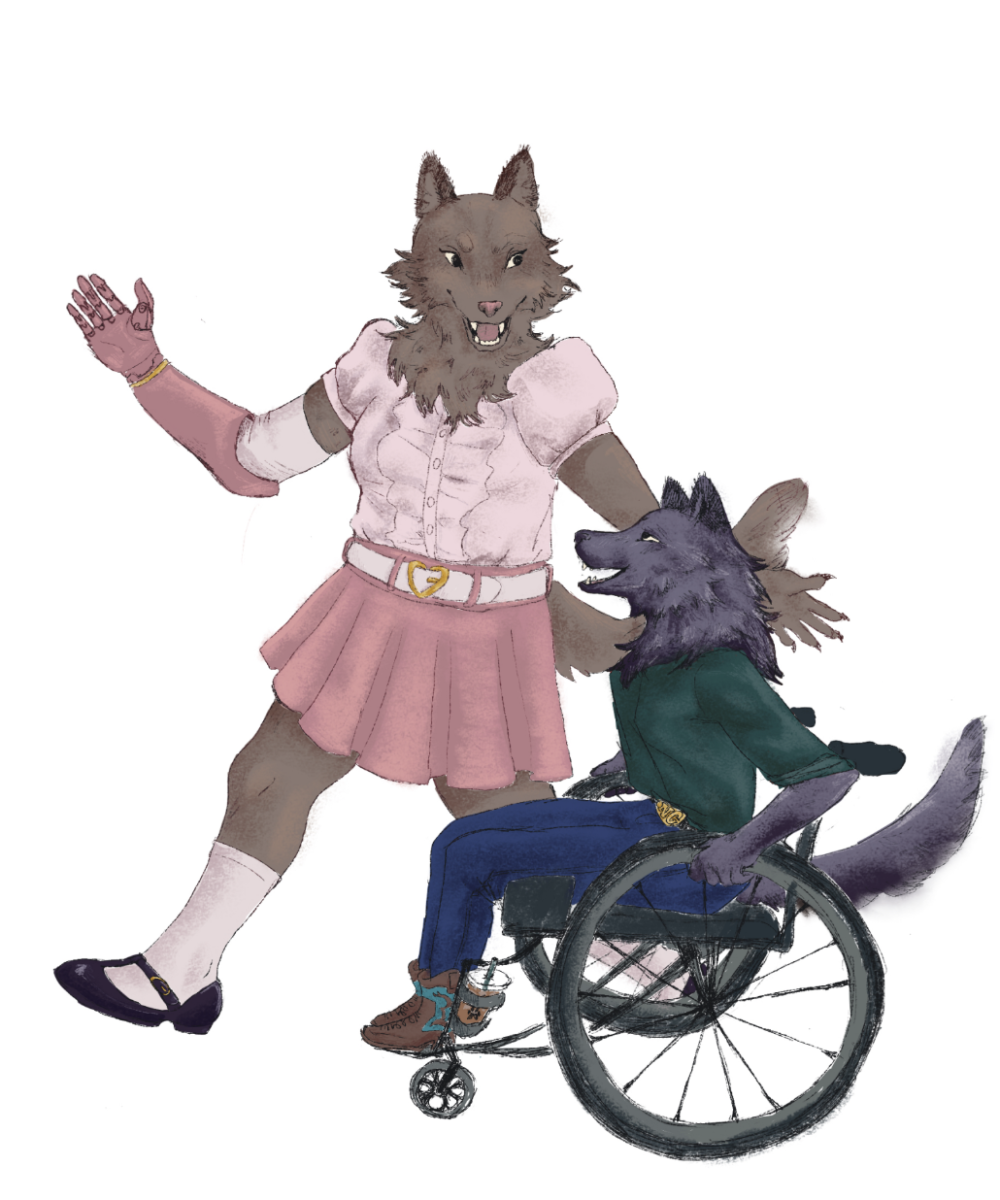Kayla Grogran and Katie Phillips met through Student Government (SG). Though on the same path, they wouldn’t know it until the time was right.
Grogran, originally from Winston-Salem, North Carolina, is a second-year Political Science and Criminology student. In SG, she served as the head delegate for the first-year delegation. Outside of SG, she is a part of the Alumni Association Student Ambassador Program (ASAP), Pre-Law Student Association and has served as a university ambassador.
Philips, a third-year student studying Political Science and Science, Technology and Society, is originally from Atlanta, Georgia. Within SG, she served as a first-year senator, a CHASS senator and as the Senate President Pro Tempore. Beyond SG, she is a part of the wind ensemble for the football and basketball bands, Pre-Law Association, and has worked with Student Media.
Though both were involved in SG and Pre-law association, it wasn’t until Grogran knew she wanted to run for Student Body President (SBP) that their professional relationship developed. Grogan stated, “Katie was really someone that I felt had a lot of impact, and really complimented me well.” Through discussion, they realized that their motivations and passions aligned.
Both acknowledged that “SG oftentimes can get tunnel vision” and that they want to “bring awareness to what SG does.” Their passion for bringing awareness and practical solutions to help students’ mental health comes from personal experience.
When asked, “How will your leadership uplift the voices of underrepresented and marginalized groups? How have diversity and inclusion influenced you and the efforts you’re working on?” Both stated that a significant part of their platform was focused on building and fostering a sense of community. They plan to “make sure everyone feels like they belong in the Wolfpack.”
Grogan said that “we realize that we attend a (Predominately White Institution) PWI. For instance, you go to a football game, you’re surrounded by a lot of undergraduate white kids. And that can make it really hard for a lot of minority groups, for instance, grad students and people of color, to look around and be like, you know, I really feel at home here, I really want to come back to do this again next week.” While Phillips added, “I think that sometimes at NC State, there is an issue of tokenizing. As a PWI ,we like to single out groups that are what we don’t consider to be the majority and say, Oh, look at what we’re doing for you, right.”
Nubian Message had the opportunity to speak with both of them to discuss their platform.
Nubian Message: In your platform, you mention making Witherspoon a hub for student activity. How do you plan to make Witherspoon a hub for all students while respecting the cultural significance of this building and the spaces it holds? Also, your platform stated that you want to “restore” Witherspoon Student Center. What do you mean by “restore?”
Grogan: “When we talk about restoring Witherspoon, there is the campus project that’s moving down towards that side of Cates [Avenue]. And so they’re talking about just upkeep for the building. When I worked at WKNC, as someone on the inside, I know that sometimes the facilities in comparison to something like Talley or Carmichael feel as though they are not up to the standard that the university holds for other student centers. Making sure that students centers of all backgrounds feel really included. I know that that was a complaint I heard at WKNC. Obviously Nubian, the African American students center and Technician, or is it the African American student center that’s housed there, right? [Interviewer states it’s the African American Cultural Center] … I’m so sorry … I think the revitalization of Witherspoon moves forward, just making sure that those facilities are shared by all of those organizations. When we were talking about making Witherspoon a student hub, I think that looks like allowing the organizations that are housed within that building, to use that green space outside Witherspoon to highlight themselves.”
Phillips: “I think Katie really hit all the points that I would have made. It comes with this sense of belonging and a sense of community, you want to be proud of the space you’re in. A lot of complaints have been that it’s not even parallel to what tally looks like. And we really just want to make sure that every single student is proud of the space they’re in.”
NM: Housing insecurity is a growing issue. If elected, you plan to collaborate with local hotels to create a fund for student emergency housing. Can you explain this approach and why you chose it?
Phillips: “I had done quite a bit of research into it. We are still up in the air about loosening the live on residence experience type deal because I got to live on my first year. And that was probably one of my best experiences of undergrad and I know Katie did it and she said it was really weird. So that wasn’t something we wanted to be like, this is going to solve the housing crisis because we aren’t quite sure where we stand with that. So we had to look elsewhere. And I know that in previous administrations, it was spoken about but never really acted upon. And I think it’s a great idea personally … [Essentially] As people book rooms with them [hotels] and stay with them. They can either donate and proceed, or they can ask for their room to go towards or profit approach a portion of their room to go towards the student emergency housing fund … A big thing [in] our platform is sustainability and that encompasses financial well being and environmental sustainability … if you cannot even have a place to live, you’re not going to be able to focus … So we wanted to find a way to alleviate those stressors, while having an actual concrete path that is more doable.”
Grogan: “I think Kayla was saying that we don’t really know how we feel about freshmen housing. That’s because there’s a lot of conversations going on with the university. We don’t want to say something that’s going to immediately be contradicted, right? We’re waiting for feedback from the university about what they’re doing, because it’s obviously a university wide issue that’s being addressed. And when we talk about emergency housing, I think it’s also important to realize that we want to be able to highlight people that do have a priority to stay on campus, people with various disabilities … who need access to transportation, whether that’s the wolf line or a vehicle of their own.”
NM: In your platform, you talked about helping students find community in athletics. In that section, you mention that NC State has historically been a PWI. In your examples of working to promote authentic and genuine belonging, you mentioned supporting tailgates, and a grad student section. Please explain how these efforts will help reduce the social isolation racial minority students face when attending athletic events at a PWI?
Grogan: “I love to go to tailgates, I love to go to basketball games. And I think that that comes very natural to me. And I can fully recognize and see that that does not come natural to everybody else. For instance, one of my best friends is a black male grad student. And the one time he went to a football game, he said, “Can I come with you because I have no one else to go with?” … they’re like, I don’t see anyone that looks like me, I don’t see anyone that is experiencing the same things as me. So it makes it really hard to connect with that student body and get into the athletics programs. To combat this, we want to be able to highlight organization tailgates … and a lot of those encompass these communities that are oftentimes overlooked in these athletic spheres.”
Phillips: “When we talk about organizations on campus, we often lean towards things that do have different student makeup. What I’m saying is there are lots of groups that have a community that addresses community within a PWI … we want to be able to help them find community, we’ve talked a lot about doing tailgates that guarantee parking passes and tailgate space and ticketing groups together. So that students from the backgrounds … [can] have their space at an athletics event.”
NM: There has been an increased demand for mental health services nationwide, yet many have remained understaffed. How do you plan to create accessibility to student mental health resources while still being realistic about the bandwidth of our counseling center?
Grogan: “One of our big priorities is to reassess the resources we have at NC State, rather than continuously bringing in here something new. For instance, we’re in talks with the mental health ambassadors … Blows my mind because they’re there and they want to help and they were never utilized. I think our mental health task force that we’ve got going on is a great idea. And I think that it’ll do amazing things if the policies are implemented. But I also think that we really do need to prioritize the resources we have here and getting them staffed and making sure we’re actually using them. Pushing people to go to the Counseling Center is the most obvious, but there are so many different groups around campus that are focused on mental health as well, and they go severely under used. I think that can really alleviate a lot of the understaffing programs or problems that we see. I also think that understaffing is something that is an ongoing problem consistently, and that is something that the administration is just going to have to figure it out, because we are obviously seeing a very big mental health problem. And we cannot continuously say, well, we just don’t have the people to accommodate you, we don’t have the people for you to talk to.”
Phillips: “As somebody who’s experienced the problem with counseling at the counseling center, when I’ve reached out on my own behalf. I have been very lucky to be able to utilize the resources where there’s a matching program within the Counseling Center, where if you provide them with your health insurance, they can help you find somebody local, who can either come to campus or do telehealth with you. So I think highlighting that service so that students who do have medical coverage that is able to cover counseling can reach out, and that can provide a little bit of breathing room. So those services are available to students who might not have that same option, as well as encouraging the Counseling Center to work with administration to help boost staffing.”
NM: What sets your campaign apart from the other three tickets and why do you feel students should support you?
Phillips: “I think that there’s a lot of questions about inaction and meaningful change and impact before and after your administration … I think it’s very important from day one, be about what you’re going to say … I think that really sets us apart as we have not only reasonable expectations for ourselves, but we also have reasonable expectations as to how we know we can interact with administration and what that advocacy can really, really look like. And having a relationship between those two goals, I think makes us a very strong campaign in comparison to others.”
Grogan: “Our platform motto is ‘a state for students’ and that’s what we truly want to bring. Every student pays a student fee towards SG and they deserve to see action from our SG that they can point to and be like, yes, SG did that for me or SG played a part in that and we really do want to bring about that change and it’s just it comes from an authentic place of loving NC State and loving its students. And I think that that really sets us apart from everyone else is … we really truly do want every single student to be a part of this Wolfpack as much as we are or we feel we are and really share the passion for NC State and be proud of where you’re at.”
To learn more about the Grogan/Phillips campaign and their platform, you can check out here.
Your vote matters. We ask that you take the time to review all candidates and their platform’s efforts and choose wisely. Voting will begin Monday, March 6 at 12:01 am and continue through Tuesday, March at 11:59 pm. Results will be announced Wednesday, March, at 7:30 pm.


